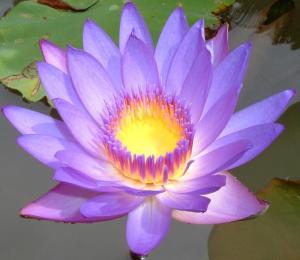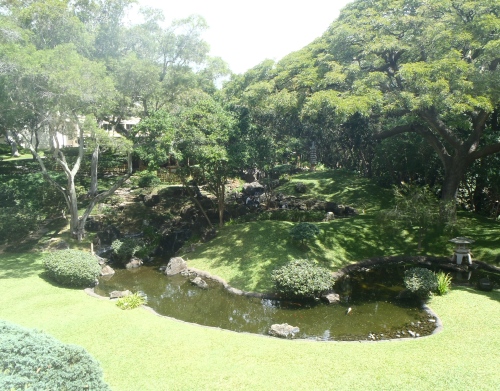Ethics and Interdependence – The Shift from /I==It/ to ((I==Thou))
With the plurality of worldviews, religions, philosophies, and interpretive frameworks easily accessible through technology, it is clear that we need to reexamine our position on ethics in relation to the present, global age. It seems that many people have taken a relativistic stance on ethics, perhaps primarily due to the fact that being able to Dialogue across worldviews and frameworks is not a common skill, and therefore few know how to coherently integrate and understand multiple perspectives, particularly where religion is invovled.
What I would like for us to examine together is whether we can have secular ethics based on the common ground of experience, without relying on any religious, philosophical, or abstract metaphysical proposition. Let us start completely clear, with no motive to prove one idea over another or arrive at any particular conclusion.
Ethics is not an isolated abstract idea, but occurs in relationship. Life is constituted of relationships: to people, nature, objects, ideas, images, thoughts, emotions, and so on. As Krishnamurti says, “to be is to be related.” Ethics, therefore, is the conduct we embody within these roles and relationships.
So, if we are to examine the way in which we conduct ourselves in relationship, a natural starting point would be to first observe who is the self that is in these relationships. If we consider the image we have of ourselves, what is it that we find? Is it not the accumulation of memories, conditionings, and knowledge about ourselves? This is not according to the philosophy of someone else or of the author; you can see this for yourself if there is curiosity to inquire, without forcing oneself to arrive at an answer. If the image we have of ourselves is the collection of memories and details about ourselves, is this not a definition? This is an attempt to define ourselves.
However, to define oneself involves cutting oneself off from everything that one is not, or at least, it appears that there is a separation. If I want to define myself, to wear all kinds of religious, political, national, economic, racial, ethnic labels, do I not need to create a gap between that which is ‘me’ and that which is not ‘me’? If I call myself a Catholic or a Buddhist, or a Democrat or a Republican, doesn’t this separate myself from all others who are not wearing the same label? It is this process of separation that is the cause of conflict and violence. We are not saying that politics, or religion, or some other thing is the cause of problems. The real troublemaker is the habit of our mind to buy into the illusion of definition, of separation.
In order to define something, one needs to separate oneself from the thing one is trying to describe. Definition requires some thing is singled out in an attempt to classify it. But this process involves objectifying that which is on the screen of awareness, thereby creating a distinction between the observer and the observed. This division causes further conflict, however, we shall not go into detail of that at the present time, but if one is interested, Jiddu Krishnamurti has much to say on that subject.
In other words, we are using a mental software that is programmed to objectify all experience and life in an attempt to classify and analyze it. We can call this an /I==It/ way of minding. Of course this has its use, but we have been conditioned to apply this to all aspects of our life, particularly our psychological life, and this creates much suffering and mental anguish. When something is seen as separate from us, as an ‘other,’ and something lesser, do we not mistreat, misuse, or act against it? If one looks at this habit of mind closely, one will realize that it is when we objectify, that we cause harm to others. Thus, this /I==It/ technology of mind is destructive in our relationships.
When we become aware and understand this process, that is the very action needed to ((rehabilitate)) the mind. In the understanding that the image of ourselves, definitions, and the objectifying nature of our /mind/ is an illusion brought on by thought and conditioning, we begin to develop a sense that all things are interconnected. To break that /cycle/ not through force or discipline but by awareness, sensitivity, and understanding, we ((See)) Life and Reality as undivided from ourselves. Is this not echoed throughout our wisdom teachings from across the ages? To love one another as oneself…is this not one of the crux of the teachings of many of our great teachers?
By breaking this conceptual prison through awareness, understanding, and curiosity to look at ourselves, we shift from an /I==It/ technology to an ((I==Thou)) technology of mind. Such a ((transformation)) is to see the Sacredness of all Life, of all Reality. In that way, how could we possibly even think of harming another? When you are aware that you are the world and the world is you, one directly perceives that to cause harm to another is to cause suffering to oneself. To make the leap from /I==It/ to ((I==Thou)) is to affect the entire web of relationships.
If one inquires into what real relationship is very seriously, one will find that one’s individual consciousness is in fact, not at all individual! If we know how to look at the anger, frustration, desire, hope, jealously, greed, confusion, uncertainty, insecurity, acquisitiveness, competitiveness, comparison, conflict, loneliness, the craving to become something, the search for something greater, moments of joy, the clinging to those memories of happiness and wanting to repeat it, and so on, within ourselves, we can recognize that this is the ground of the human experience…it is a shared experience common to all humankind. So, when we inquire into these matters, we are really looking into the consciousness of all humankind.
Ethics, therefore, is when ((right relationship)), ((I==Thou)), is one’s being, and it affects all of our relations. One understands, not intellectually, but through one’s heart-and-mind, that any separation between oneself and anything or anyone else is only an illusion of thought. Therein lies the foundation of compassion. That which is unethical comes to be when live from a place of /I==It/, whereby we perpetuate conflict, violence, division, and and so on.
Related Articles:
On Relationships
Philosophy is a Path of Happiness
Meditations on Zen and Martial Arts Philosophy
Other essays: http://papers.ssrn.com/sol3/cf_dev/AbsByAuth.cfm?per_id=1837756
Navigating the Mazeway: Fulfilling our Best Possibilities As Individuals and As a Society, by Tony Parrotto
The Mazeway Project
That Which Is, by Martha Randolph and Elizabeth Campbell







